Exclusive: Testing Intel's Unreleased Core i9-9900KS
We take Intel's unreleased Special Edition Core i9-9900KS for a benchmarking spin.
Core i9-9900K Rendering, Compression, Decompression and Encryption Performance
| Memory | Chart Entry |
|---|---|
| DDR4-2666 | Core i9-9900KS CL, Core i9-9900KS H115i, Core i9-9900K, Ryzen 7 3700X, Ryzen 9 3900X, 9900K @ 5.0 DDR4-2666 |
| DDR4-3600 | Core i9-9900KS @ 5.2, Core i9-9900K @ 5.0, Ryzen 7 3700X, Ryzen 9 3900X |
Rendering
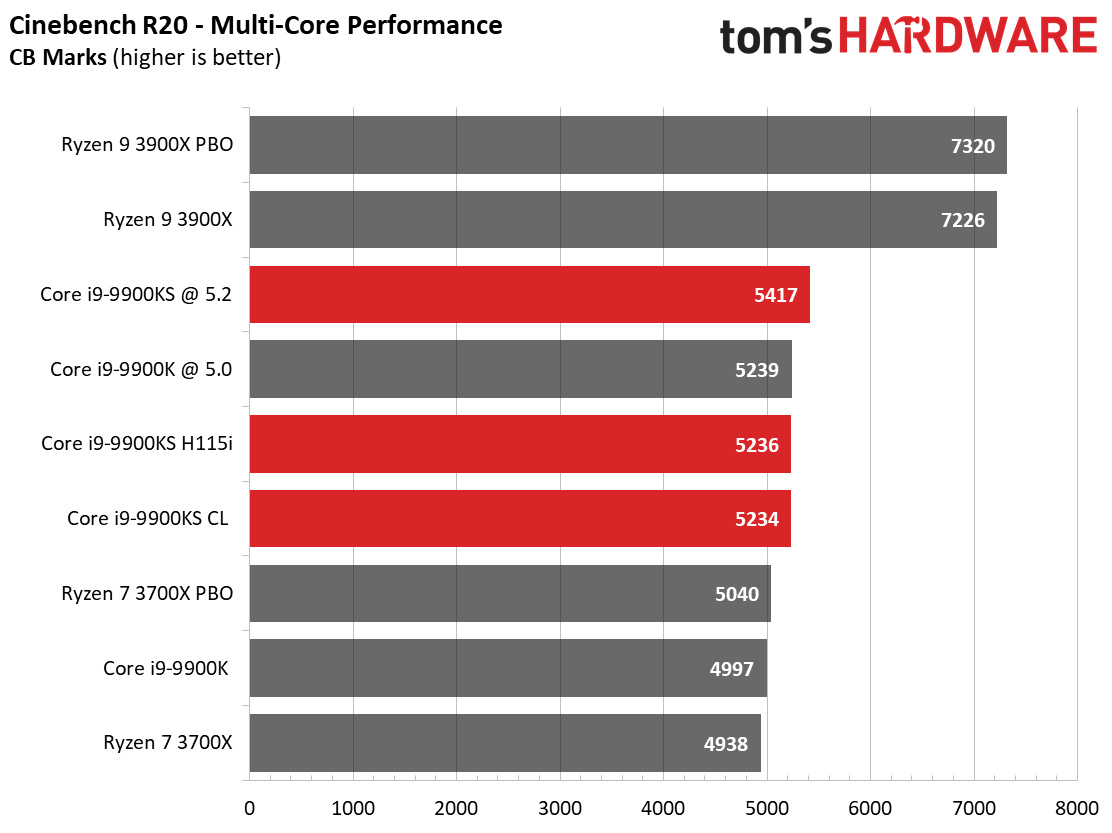
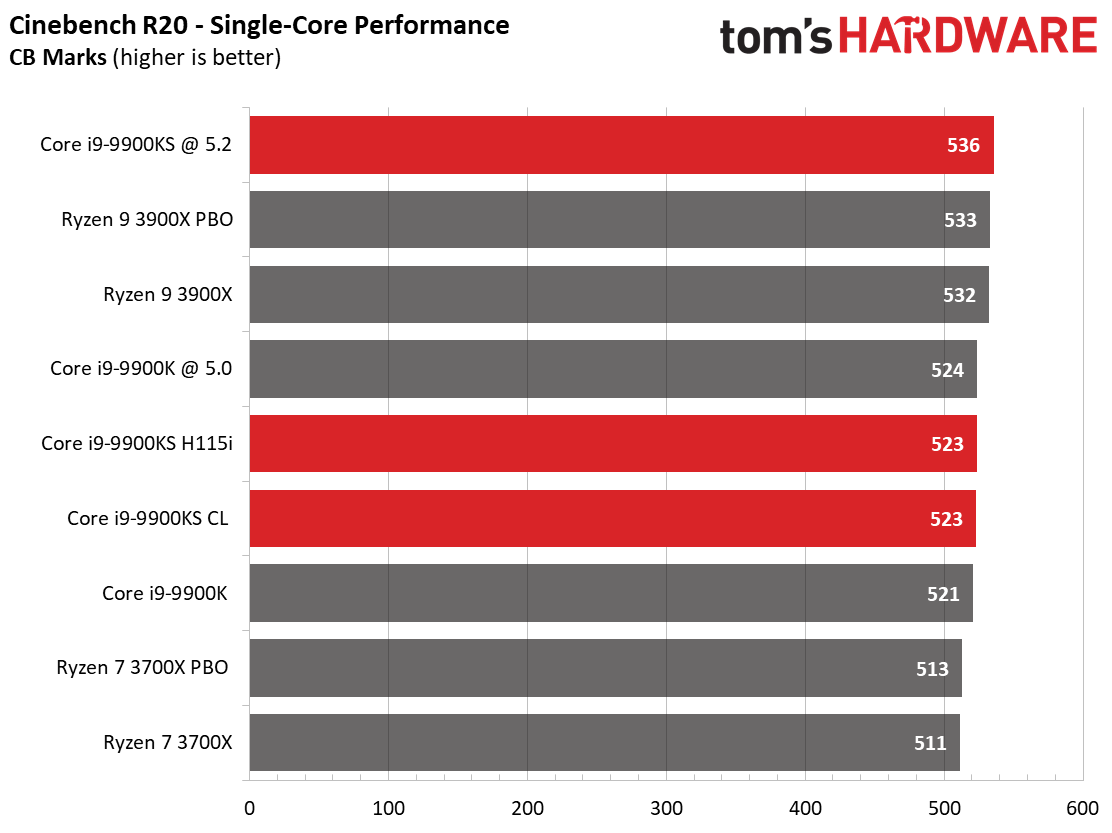
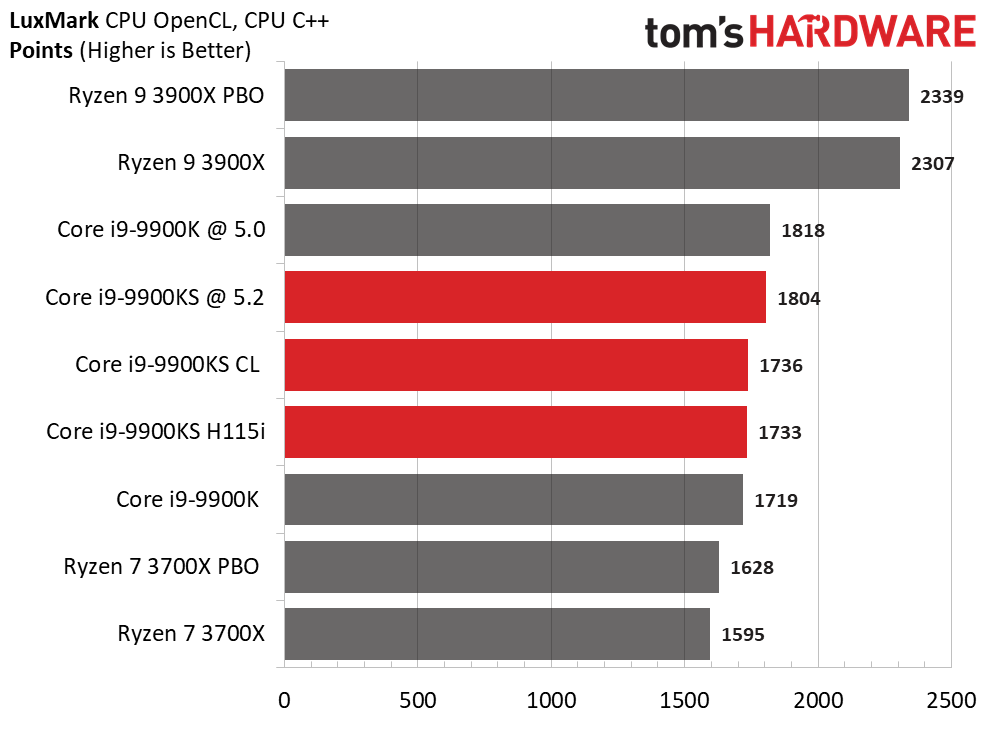
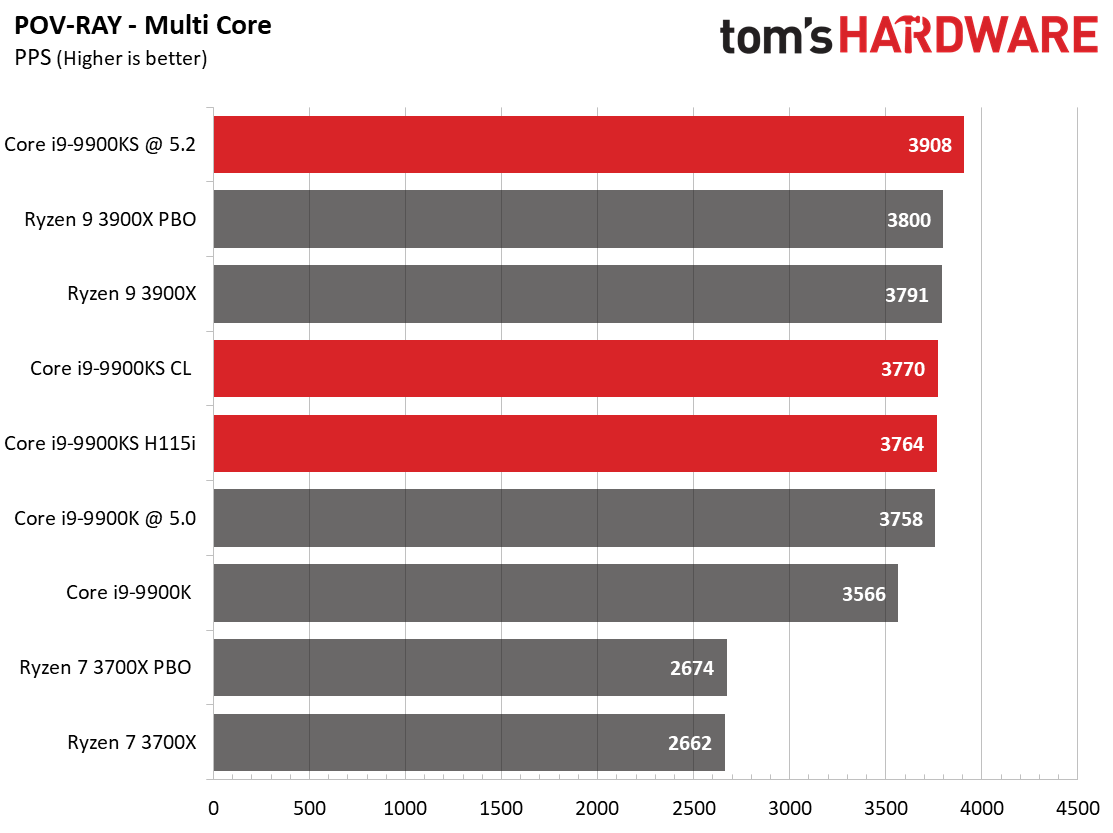
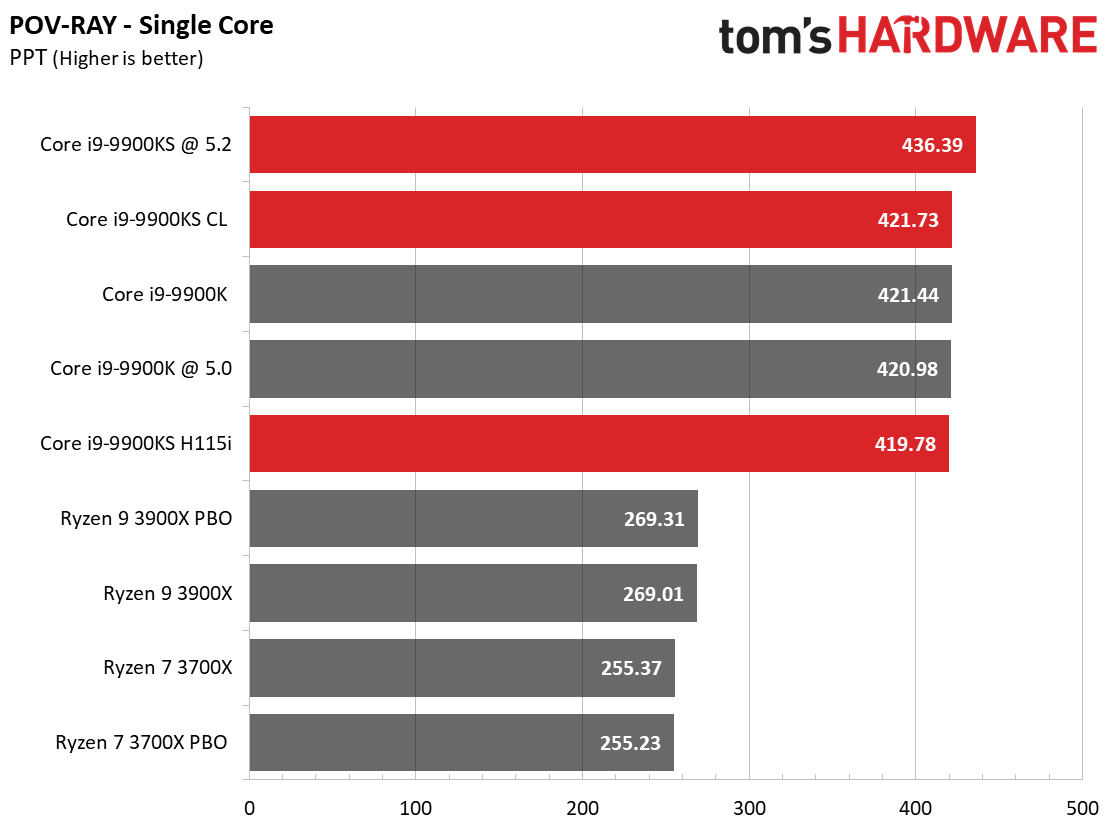
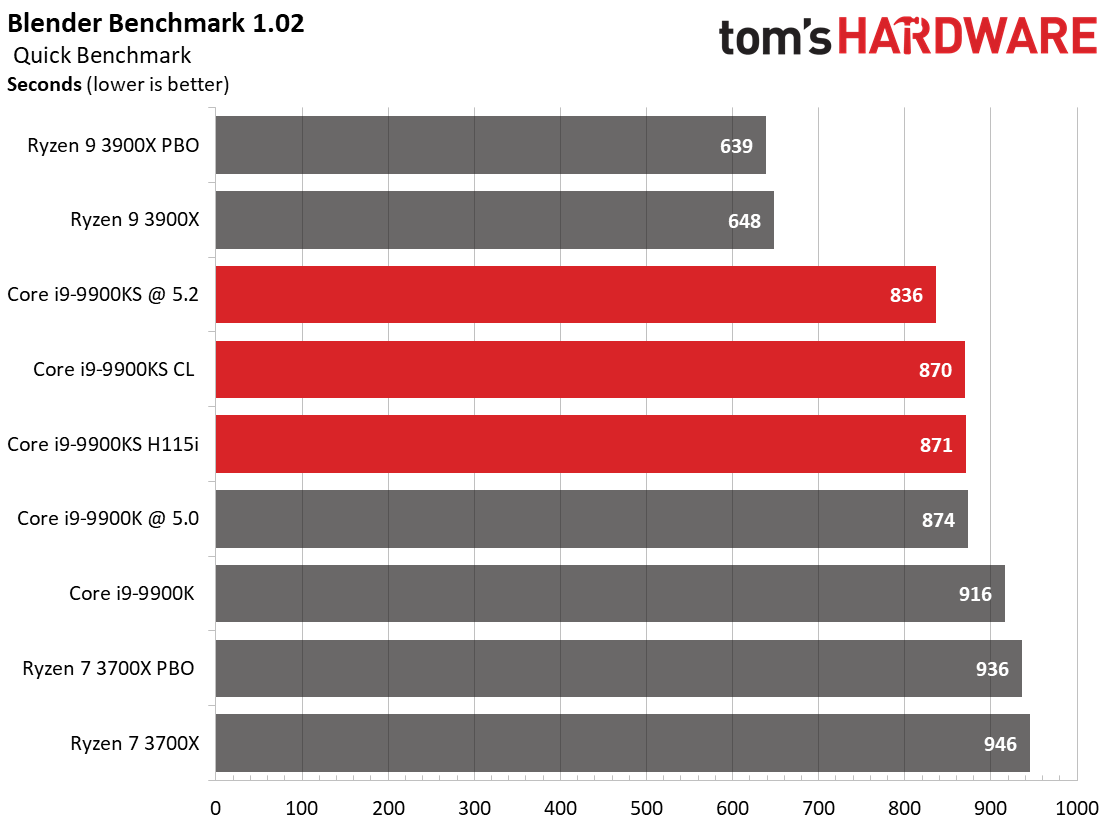
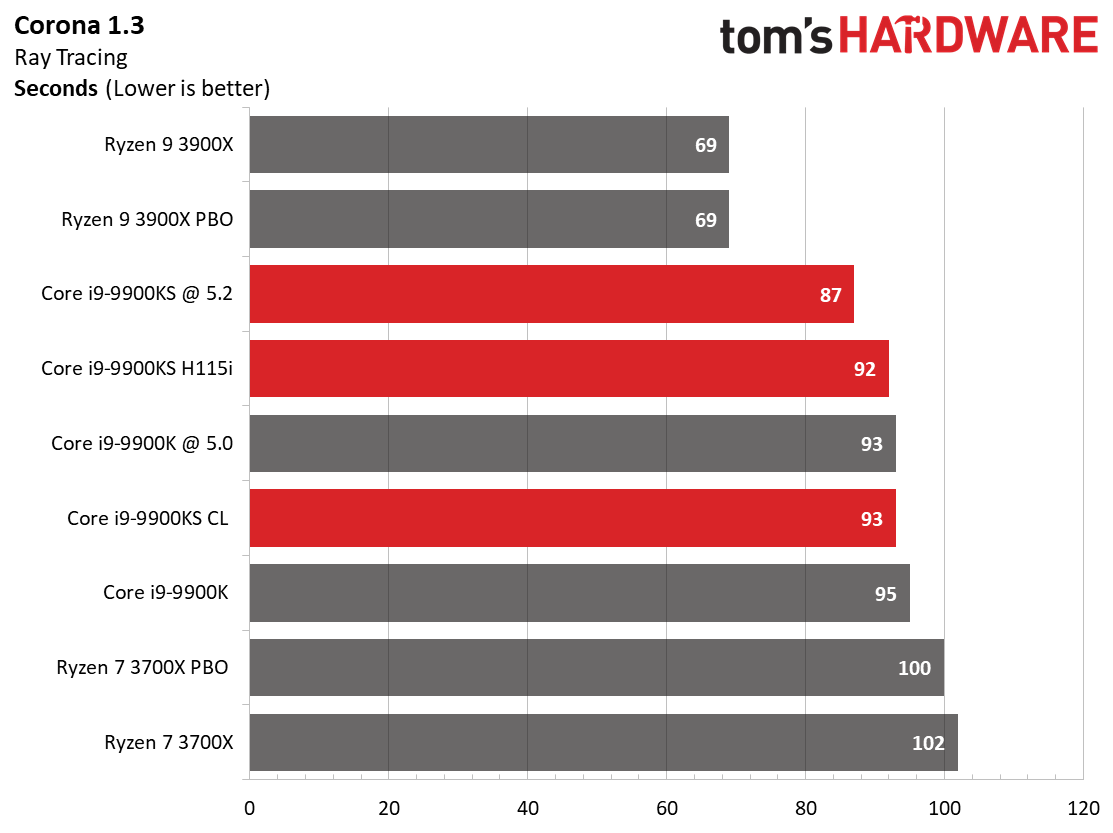
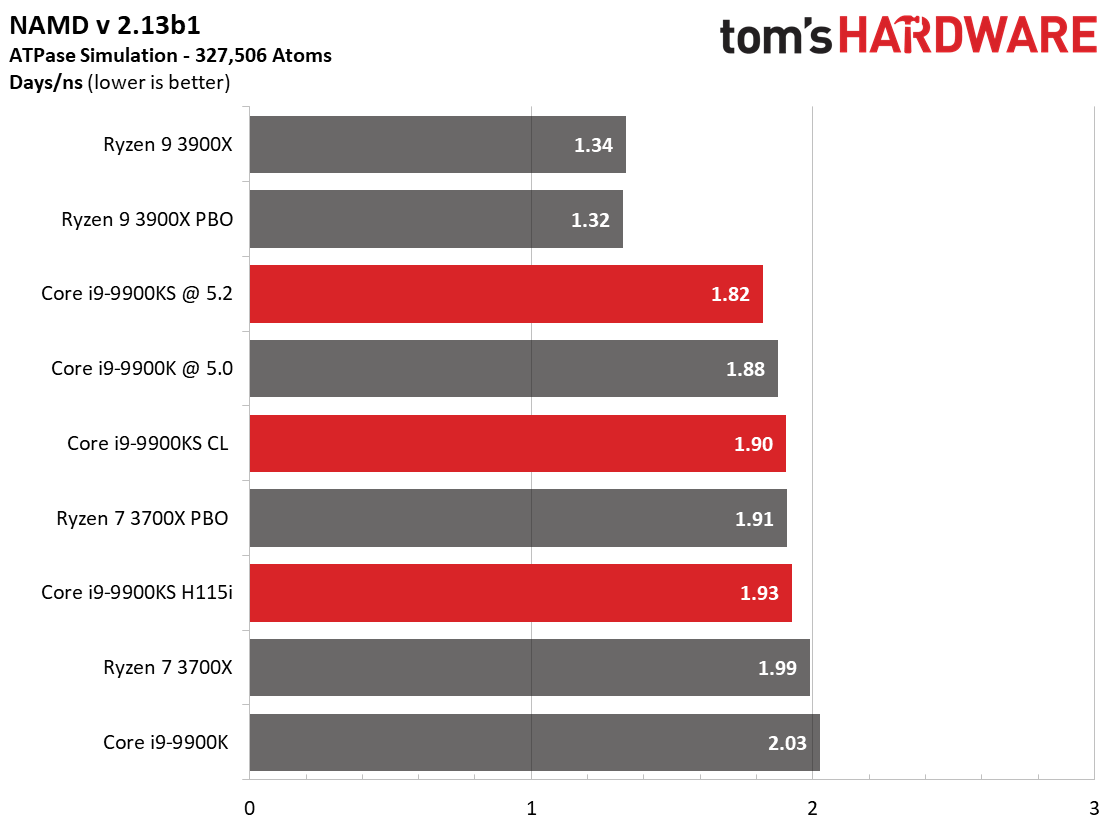
As we can see throughout this series of tests, AMD's Ryzen processors undoubtedly sit atop the multi-threaded benchmark throne.
You'll notice that the tuned -9900KS doesn't fare as well as the overclocked Core i9-9900K in the LuxMark test, despite its 200 MHz frequency advantage and similar memory data transfer rates. We're tentatively chalking that up to overhead from the in-silicon mitigations we tested on page two, but it's possible this is a motherboard firmware issue, as well.
The Core i9-9900KS leads the Pov-Ray testing and gives us the expected performance improvements in several tests, but Ryzen 9 3900X retains its lead in almost all of these threaded tests.
Compression, Decompression and Encryption
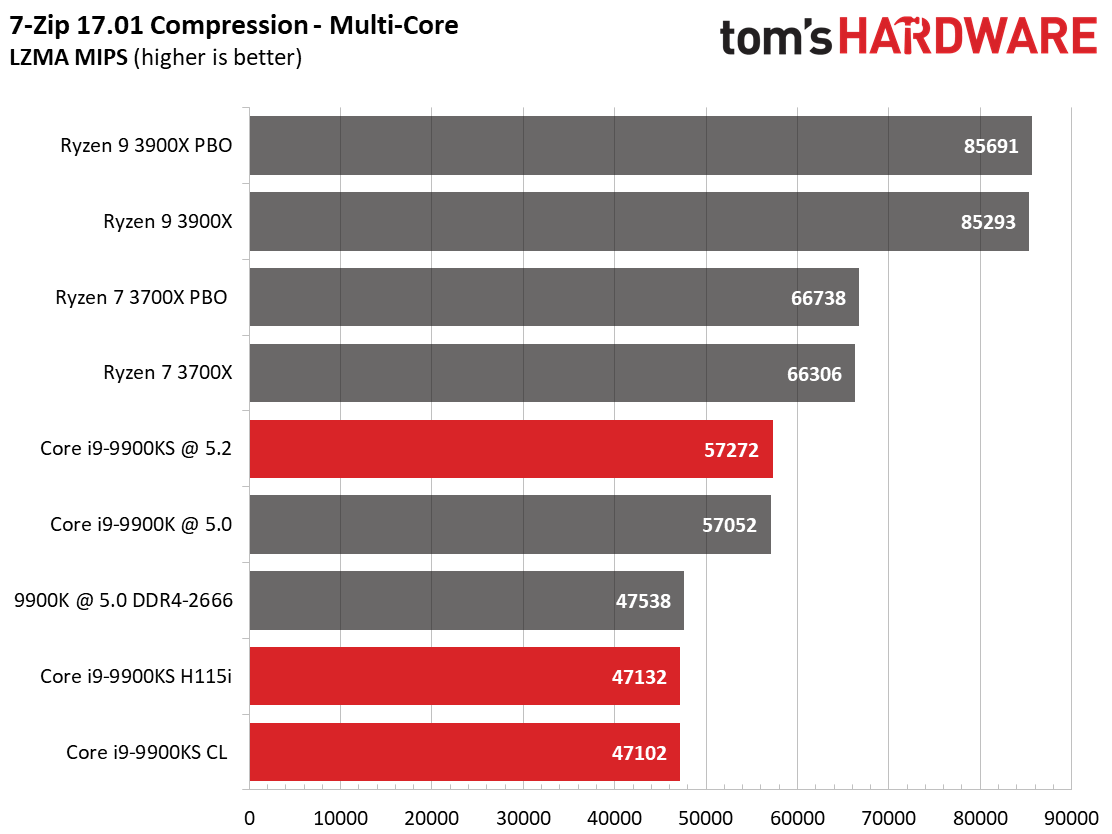
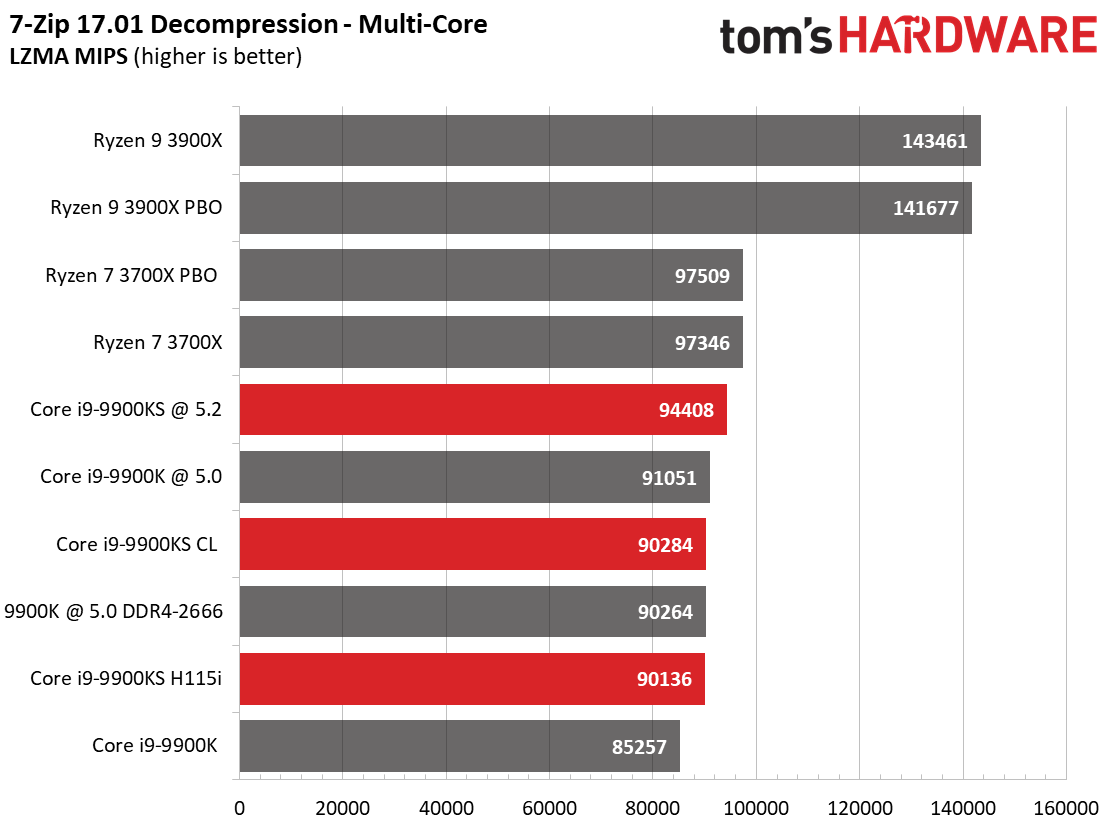
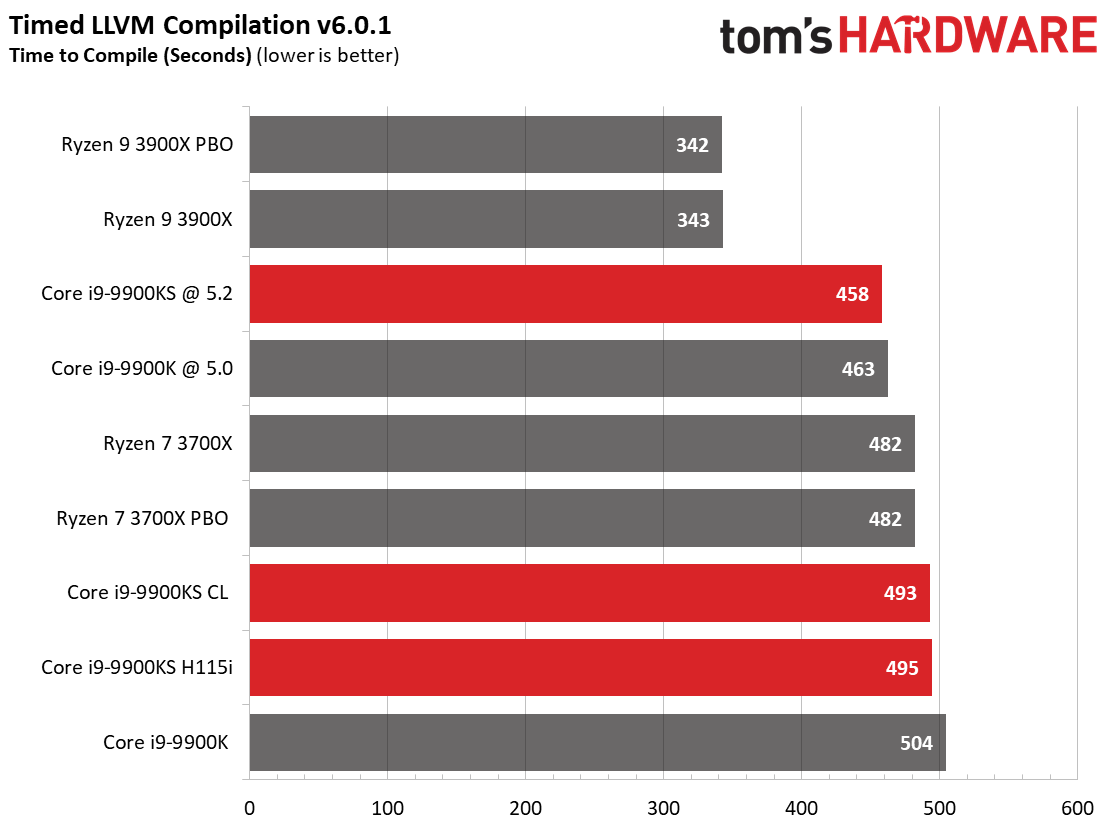
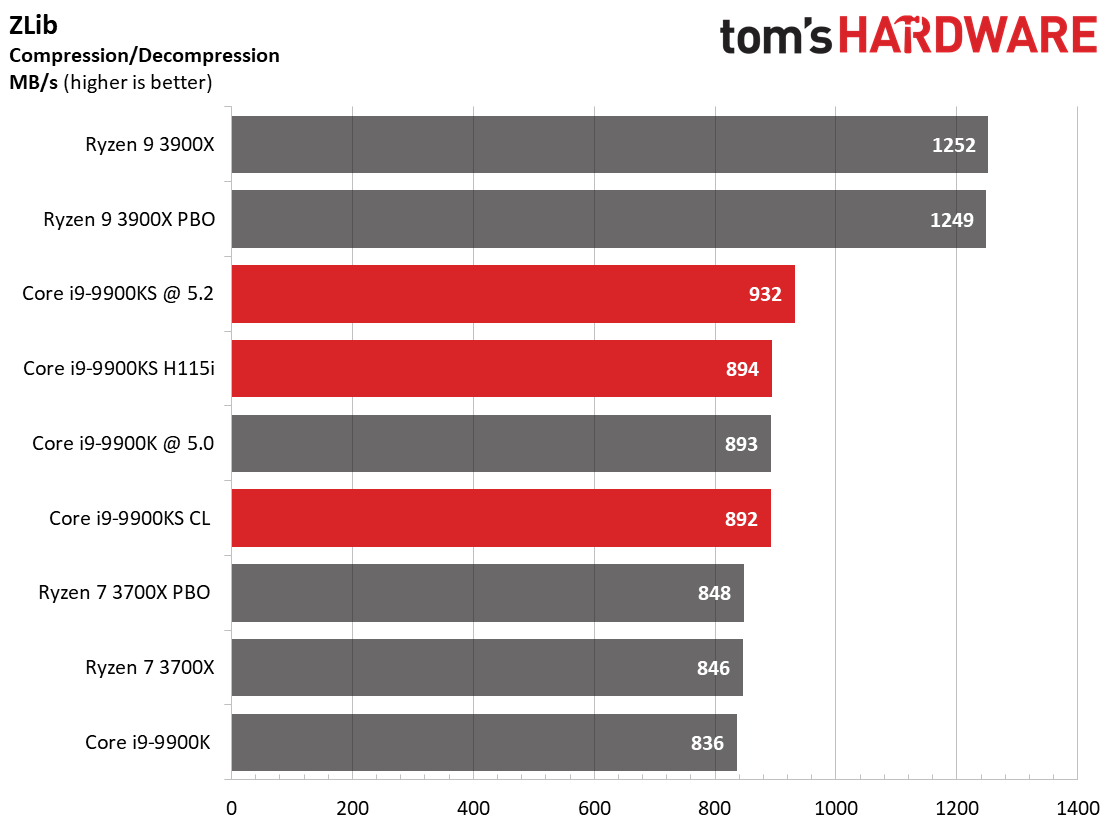
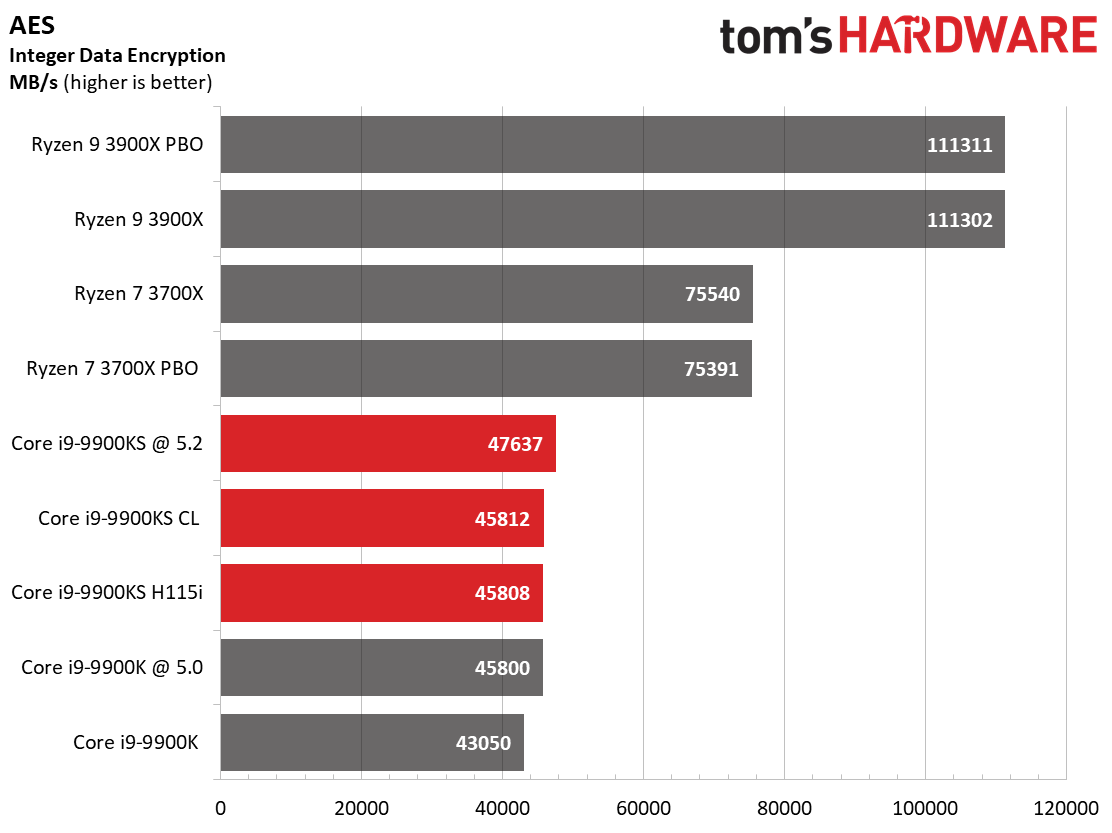
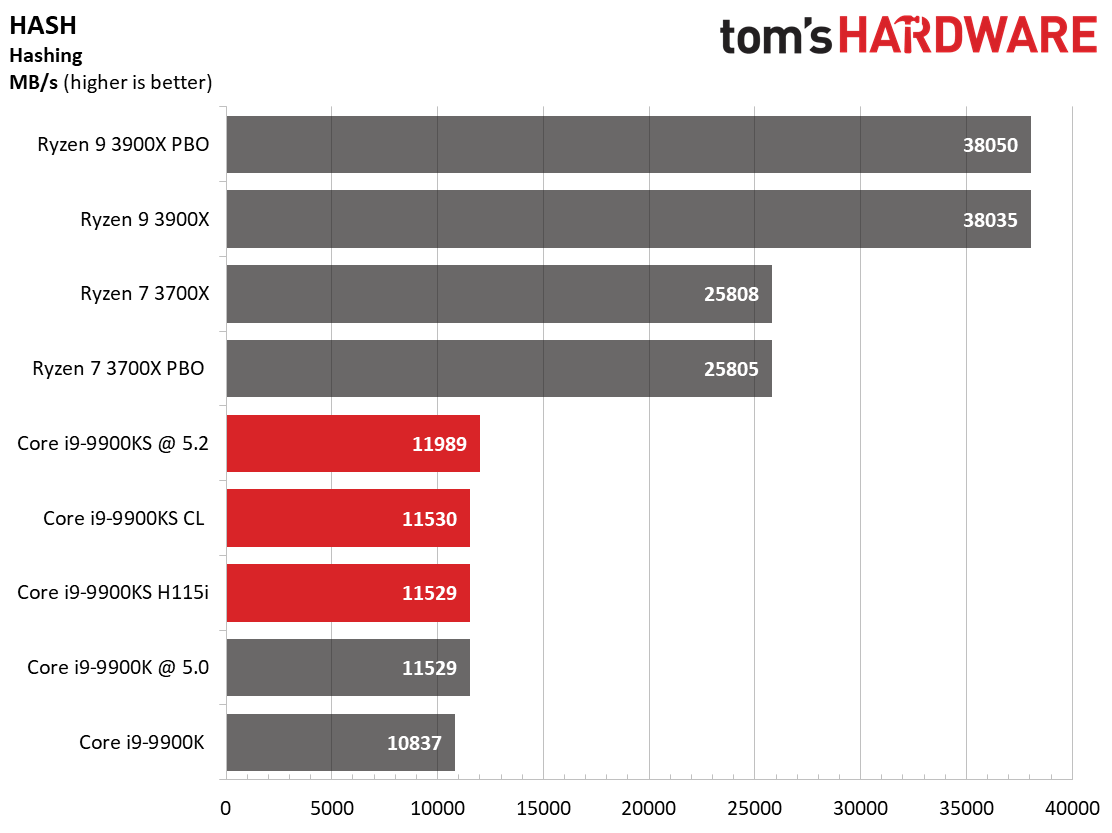
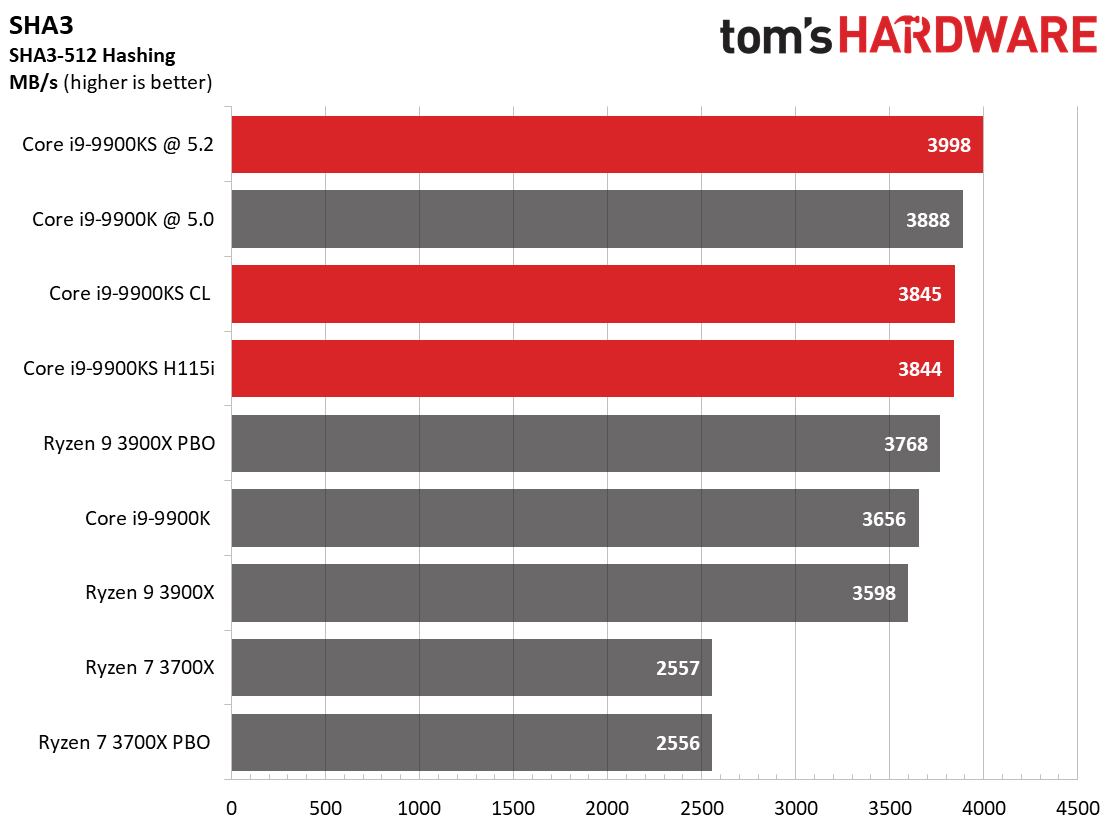
Our threaded compression and decompression 7-Zip and ZLib tests work directly from system memory, removing storage throughput from the equation.
These tests largely leverage AMD's multi-threaded heft, much like we observed in the rendering tests. It's noteworthy that AMD's architecture is far superior in hashing and AES encryption workloads, beating the -9900K/S models on a per-core basis.
MORE: Best CPUs
MORE: Intel & AMD Processor Hierarchy
MORE: All CPUs Content
Get Tom's Hardware's best news and in-depth reviews, straight to your inbox.
Current page: Rendering, Compression, Decompression and Encryption
Prev Page Web Browser and Encoding Next Page Thoughts
Paul Alcorn is the Editor-in-Chief for Tom's Hardware US. He also writes news and reviews on CPUs, storage, and enterprise hardware.
-
nitrium Yet another super underwhelming Intel release. I guess they'll up their game next gen, but at the price they're asking for it, it's at best "meh".Reply -
Aspiring techie There's almost zero reason to buy this CPU if the rumored price is accurate. It's only for those who want the absolute best gaming experience. For almost every other usage case in the $500 price bracket, the 3900X is the clear winner.Reply
I still find it funny that AMD's 12 core CPU consumes less power than Intel's 8-core. My how the times have changed... -
jimmysmitty ReplyAspiring techie said:There's almost zero reason to buy this CPU if the rumored price is accurate. It's only for those who want the absolute best gaming experience. For almost every other usage case in the $500 price bracket, the 3900X is the clear winner.
I still find it funny that AMD's 12 core CPU consumes less power than Intel's 8-core. My how the times have changed...
Considering the clock speed difference and that while its not quite 7nm it is still a smaller node than Intels 14nm its not surprising at all. If anything its to be expected. If Intel was using less power with a massive clock speed advantage on a larger process then something would be wrong. -
Aspiring techie Reply
I totally agree. 7nm especially has been a huge advantage on that front. It's just that AMD CPUs have traditionally been power hogs while Intel has been fast and power efficient. I find it funny that the roles are somewhat reversed now.jimmysmitty said:Considering the clock speed difference and that while its not quite 7nm it is still a smaller node than Intels 14nm its not surprising at all. If anything its to be expected. If Intel was using less power with a massive clock speed advantage on a larger process then something would be wrong. -
mitch074 Reply
"Power hog" is relative - at the time of the Athlon XP, the Pentium 4 had a secondary role as a room heater.Aspiring techie said:I totally agree. 7nm especially has been a huge advantage on that front. It's just that AMD CPUs have traditionally been power hogs while Intel has been fast and power efficient. I find it funny that the roles are somewhat reversed now. -
vinay2070 9900K @5Ghz performs better than 9900KS @5GHz and costs lesser ? OMG! I understand there are bug fixes, but the cost increase for very little performance increase, that too at 5.2GHz OC is not worth it IMHO. For the price of this CPU, I can get the 3700X/Mobo/16GB ram and it does not make a lot of difference at 1440P anyway.Reply -
unityole Replyadmin said:We take Intel's unreleased Special Edition Core i9-9900KS for a benchmarking spin.
Exclusive: Testing Intel's Unreleased Core i9-9900KS : Read more
is it possible to have Paul also test these new chips with mitigation on how they affect PCIe SSD performance? -
Bassben004 Reply
Another typo is the 49.95 per thread price for the 3900X. 499/24=49.95?? The whole point of this was to try and act like Intel was releasing a competitive product, but they are just pulling the same stuff as when they did the 8086K. A special bin for <2% increase and more $$mamasan2000 said:AMD 3900X is not a 14nm CPU. Guess that is a typo, should be 7 nm.